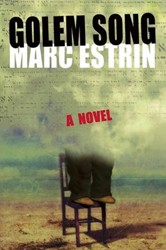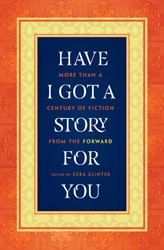This highly literary, lyrical work tells the stories of the members of three generations of one family and the notable people they encounter, all of whom share a common connection to the city of Istanbul. The wide cast of characters’ intertwined lives flow one into the next as the narrator chronicles their meetings, partings, love affairs, interminable solitudes, and deaths among the set pieces of an irrecoverable past: old films and plays, soothing music and homemade meals, bustling cafes and the dusty workshops of old world artisans. Permeating the novel is a sense of mourning for things lost — whether due to personal tragedy, historical events, or the persistent forward motion of the world. Past, present, and future merge together, informing one another, inextricable.
The narrator suggests that the book need not be read from cover to cover, and instead encourages his readers to dip in where they like, collect what they will, and flip to another portion of the narrative at whim. Reading in the usual front-to-end fashion is still like flipping through a photo album full of disjointed images of strangers. Short blurbs toward the beginning of the novel sum up the characters’ identities, and though this list seems to be meant as a resource for readers, it may not be straightforward enough to help anyone turning to it for reference. Readers may find it tedious to keep track of all the names, and once one’s bearings are lost within this novel, they are difficult to regain. It is equally easy to feel adrift in time and space with few clear narrative clues to aid the construction of a sense of chronology from the non-linear prose.
Characters’ stories often serve as jumping-off points for long philosophical considerations. Dense and divergent as these passages can be, they are where the beauty of the novel lies, replete with poignant, wrenching sentences. The narrator broods on the nature of solitude, of truth and lies, on the creation of story, on the purpose of self-deception, on the barriers of distance and language, on memory, fantasy, nostalgia, the known and unknowable. The eloquence and insights of these remarks on human existence make Istanbul Was a Fairy Tale a quotable, thought-provoking discussion-starter.
As universal as the novel’s messages are, the specifics are key. Judaism informs the characters’ lives and their connections to each other in subtle ways, and of course, plays a vital part in shaping their experience of twentieth-century Europe. By necessity and by choice, many become wandering travelers who relocate around the globe. Cultural identity and religious adherence intersect with national identity and language to shape feelings of belonging or estrangement.
Though of definite literary interest, at over 650 pages of recondite prose arranged in protracted paragraphs, Istanbul Was a Fairy Tale will be a struggle for most. For the patient, perseverant reader who is willing to give this novel the time and close attention it demands, it has the makings of a rewarding read.

Fiction
Istanbul Was a Fairy Tale
- Review
By
– December 17, 2012
Dani Crickman is the Jewish Book Council’s art director.
Discussion Questions

Jewish literature inspires, enriches, and educates the community.
Help support the Jewish Book Council.



